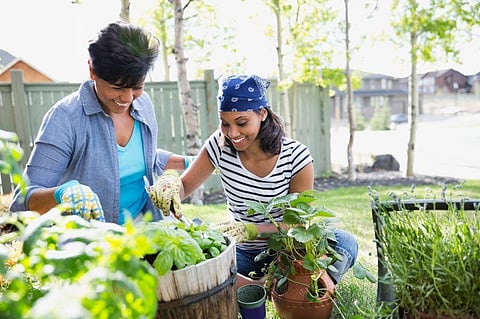MONDAY, Jan. 9, 2023 (HealthDay News) -- Community gardening can improve well-being and reduce risk factors for disease, according to a study published in the January issue of The Lancet Planetary Health.
Jill S. Litt, Ph.D., from the University of Colorado Boulder, and colleagues conducted a randomized controlled trial involving adults who were on Denver Urban Garden waiting lists for community gardens in Denver and Aurora. Participants were randomly assigned to receive a community garden plot (intervention group; 145 participants) or remain on a waiting list and not garden (control group; 146 participants). Diet, physical activity, and anthropometry were examined as primary outcomes during spring (April to early June, before randomization, timepoint 1 [T1]), autumn (late August to October, timepoint 2 [T2]), and winter (January to March, after the intervention, timepoint 3 [T3]).
The researchers observed a significant time-by-intervention effect for fiber intake (mean between-group difference at T2 of 1.41 g per day for intervention minus control) and for moderate-to-vigorous physical activity (mean between-group difference, 5.80 minutes/day). Participants in the intervention group showed greater reductions in perceived stress and anxiety between T1 and T2 compared with those in the control group.
"This randomized controlled trial strengthens evidence for community gardening as a comprehensive multicomponent nature-based social intervention that can improve some health behaviors and reduce perceived stress and anxiety in a diverse urban population," the authors write.
Several authors disclosed financial ties to Connecting Health Innovations.
Abstract/Full Text



